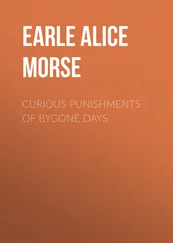Emma Marshall - Her Season in Bath - A Story of Bygone Days
Здесь есть возможность читать онлайн «Emma Marshall - Her Season in Bath - A Story of Bygone Days» — ознакомительный отрывок электронной книги совершенно бесплатно, а после прочтения отрывка купить полную версию. В некоторых случаях можно слушать аудио, скачать через торрент в формате fb2 и присутствует краткое содержание. Жанр: foreign_prose, на английском языке. Описание произведения, (предисловие) а так же отзывы посетителей доступны на портале библиотеки ЛибКат.
- Название:Her Season in Bath: A Story of Bygone Days
- Автор:
- Жанр:
- Год:неизвестен
- ISBN:нет данных
- Рейтинг книги:4 / 5. Голосов: 1
-
Избранное:Добавить в избранное
- Отзывы:
-
Ваша оценка:
- 80
- 1
- 2
- 3
- 4
- 5
Her Season in Bath: A Story of Bygone Days: краткое содержание, описание и аннотация
Предлагаем к чтению аннотацию, описание, краткое содержание или предисловие (зависит от того, что написал сам автор книги «Her Season in Bath: A Story of Bygone Days»). Если вы не нашли необходимую информацию о книге — напишите в комментариях, мы постараемся отыскать её.
Her Season in Bath: A Story of Bygone Days — читать онлайн ознакомительный отрывок
Ниже представлен текст книги, разбитый по страницам. Система сохранения места последней прочитанной страницы, позволяет с удобством читать онлайн бесплатно книгу «Her Season in Bath: A Story of Bygone Days», без необходимости каждый раз заново искать на чём Вы остановились. Поставьте закладку, и сможете в любой момент перейти на страницу, на которой закончили чтение.
Интервал:
Закладка:
Griselda made no reply to this, but, rising with the dignity she knew so well how to command, she walked towards the open door of the next room, and said:
"Mr. Travers, will you be so good as to take me to the ball-room that I may rejoin Lady Betty Longueville?"
The young man's face betrayed his pleasure at the request made to him, and the discomfiture of his rival – rather I should say the hoped-for discomfiture, for Sir Maxwell Danby was not the man to show that he had the worst in any encounter. He was at Griselda's side in an instant, and was walking, or rather I should say ambling, towards Lady Betty, and, ignoring Mr. Travers's presence, said:
"Your ladyship's fair ward is weary, nay, pining for your company, my lady."
Lady Betty shrugged her shoulders, and said:
"I vow, sir, she has enough of my company, and I of hers! Now, Griselda, do not look so mightily affronted; it is the truth. Let us all go to supper; and make up a pleasant little party. You won't refuse, Mr. Travers, I am sure."
"With all my heart I accede to your plan, Lady Betty," Sir Maxwell said, "though I see your late partner is darting shafts of angry jealousy at me from his dark eyes."
So saying, Sir Maxwell led the way with Lady Betty on his arm, and Griselda and Mr. Travers followed, but not before Griselda caught the words:
"Upon my honour, she acts youth to perfection; but she is forty-five if she is a day. Did you ever behold such airs and graces?"
Griselda felt her cheek burn with shame and indignation also, for had she not heard Lady Betty say that young Lord Basingstoke was one of her most devoted admirers? and yet she was clearly only a subject of merriment, and the cause of that loud unmusical laughter which followed the words. But Griselda had passed out of hearing before Lord Basingstoke's friend inquired:
"Who is the other? She looks like a 'Millerite' and an authoress. He would be a brave man to indulge in loose talk with her. Upon my word, she walks like a tragedy queen!"
"There'll be the story of Wilson and Macaulay told over again. We shall have her statue put up to worship!"
"I don't know what you are talking about," said the young lord, with a yawn.
"My dear fellow, have you never heard of Madam Macaulay, the writer of nine huge volumes of history, who deserted the reverend Dr. Wilson and married a young spark named Graham? She is Mrs. Graham now; has retired from the gay scenes of Bath with her young Scot, who feeds on oat-cakes and such-like abominations."
"Lady Betty will be following suit – not the white lady," said the young lord. "I think I'll try and get an introduction," he said, "and lead her through the 'contre danse.'"
"You won't get the introduction from Lady Betty. I'll lay a wager she will be too wary to give it; but I must look after my partner, so ta-ta!"
Truly the world is a stage, across which the generations of men come and go! Assemblies of to-day at Bath and Clifton, and other places of fashionable resort, may wear a different aspect in all outward things, but the salient points are the same. Idle men and foolish women vie with each other in the parts they play. Age wears the guise of youth, and vanity hopes that the semblance passes for the reality.
Literary women may not write as Mrs. Macaulay did nine volumes of ill-digested and shallow history, and become thereby famous, and it would be hard to match the profane folly of a clergyman like Dr. Wilson, who in his infatuation erected a statue to this woman in his own church of St. Stephen's, Walbrook, adorned as the Goddess of Liberty – an infatuation which we must charitably suppose was madness. Nor would such a woman be the rage now at Bath or anywhere else.
Lady Miller was of a higher order of womanhood. She created a literary circle in a beautiful villa at Batheaston, inviting her friends to contribute poems and deposit them in a vase from Frascati.
It may seem to us ridiculous that successful contributors should be crowned by Lady Miller with all due solemnity with myrtle wreaths. But there is surely the same spirit abroad at the close of the nineteenth as marked the last years of the eighteenth century. The pretenders are not dead. They have not vanished out of the land. There are the Lady Bettys who put on the guise of youth, and the Mrs. Macaulays who put on the appearance of great literary talent. They pose as authorities on literature and politics, and they are often centres of a côterie who are fully as subservient as that which Lady Miller gathered round her in her villa at Batheaston. They may not kneel to receive a laurel crown from the hands of their patroness; but, none the less, they carry themselves with the air of those who are superior to common folk, and can afford to look down from a vantage-ground on their brothers and sisters in the field of literature, who, making no effort to secure a hearing, sometimes gain one, and win hearts also. It may be when the memory of many has perished with their work, that those who have laboured with a true heart for the good of others, and not for their own praise and fame, may, being dead, yet speak to generations yet to come.
CHAPTER III.
ANOTHER SIDE OF THE PICTURE
There was not a cloud in the sky on that December night, and the "host of heaven" shone with extra-ordinary brilliancy. The moon, at her full, was shedding her pure silvery light upon the terraces and crescents of the fair city of the West, and there were yet many people passing to and fro in the streets. The link-boys had but scant custom that night, and the chair-men found waiting for the ladies at Wiltshire's Rooms less irksome than when, as so often happened, they had to stand in bitter cold and darkness long after the hour appointed for them to take up their burdens and carry them to their respective homes.
In a room in Rivers Street a woman sat busily at work, with a mass of papers before her – musical scores and printed matter, from which she was making swift copy with her firm, decided hand. She was so absorbed in the business in hand, that she did not feel the weariness of the task before her. Copying catalogues and tables could not be said to be an interesting task; but Caroline Herschel never weighed in the balance the nature of her work, whether it was pleasant or the reverse. It was her work, and she must do it; and it was service for one she loved best in the world, and therefore no thought of her own likes or dislikes was allowed to enter into the matter. Presently a voice was heard calling her name:
"Caroline – quick!"
The pen was laid down at once, and Miss Herschel ran upstairs to the upper story to her brother.
"Help me to carry the telescope into the street. The moon is just in front of the houses. Carry the stand and the instrument. Be careful! I will follow with the rest."
"In the street?" Caroline asked. "Will you not be disturbed by passers-by?"
"Nothing disturbs me," was the reply. "I answer no questions, so folks tire of putting them. It is such a glorious night – there may not be another like it for months; and the moon is clearer than I have seen her since I had the seven-foot reflector."
As William Herschel spoke, he was preparing to carry the precious reflector downstairs – that outcome of many a night-watch, and many a weary hour of purely manual labour. Turning the lathe and polishing mirrors was, however, but a small part of his unflagging perseverance. This perseverance had evolved the larger instrument from a small telescope, bought for a trifle from an optician at Bath. That telescope had first kindled the desire in William Herschel's mind to produce one which should surpass all its predecessors, and help him to scan more perfectly those "star-strewn skies," and discover in them treasures to make known to future ages, and be linked for ever with his name. Caroline Herschel was his right hand. She was his apprentice in the workshop – his reader when the polishing went on; and often, when William had not even a moment to spare for food, she would stand over him, and feed him as he worked with morsels of some dish prepared by her own hand.
Читать дальшеИнтервал:
Закладка:
Похожие книги на «Her Season in Bath: A Story of Bygone Days»
Представляем Вашему вниманию похожие книги на «Her Season in Bath: A Story of Bygone Days» списком для выбора. Мы отобрали схожую по названию и смыслу литературу в надежде предоставить читателям больше вариантов отыскать новые, интересные, ещё непрочитанные произведения.
Обсуждение, отзывы о книге «Her Season in Bath: A Story of Bygone Days» и просто собственные мнения читателей. Оставьте ваши комментарии, напишите, что Вы думаете о произведении, его смысле или главных героях. Укажите что конкретно понравилось, а что нет, и почему Вы так считаете.












